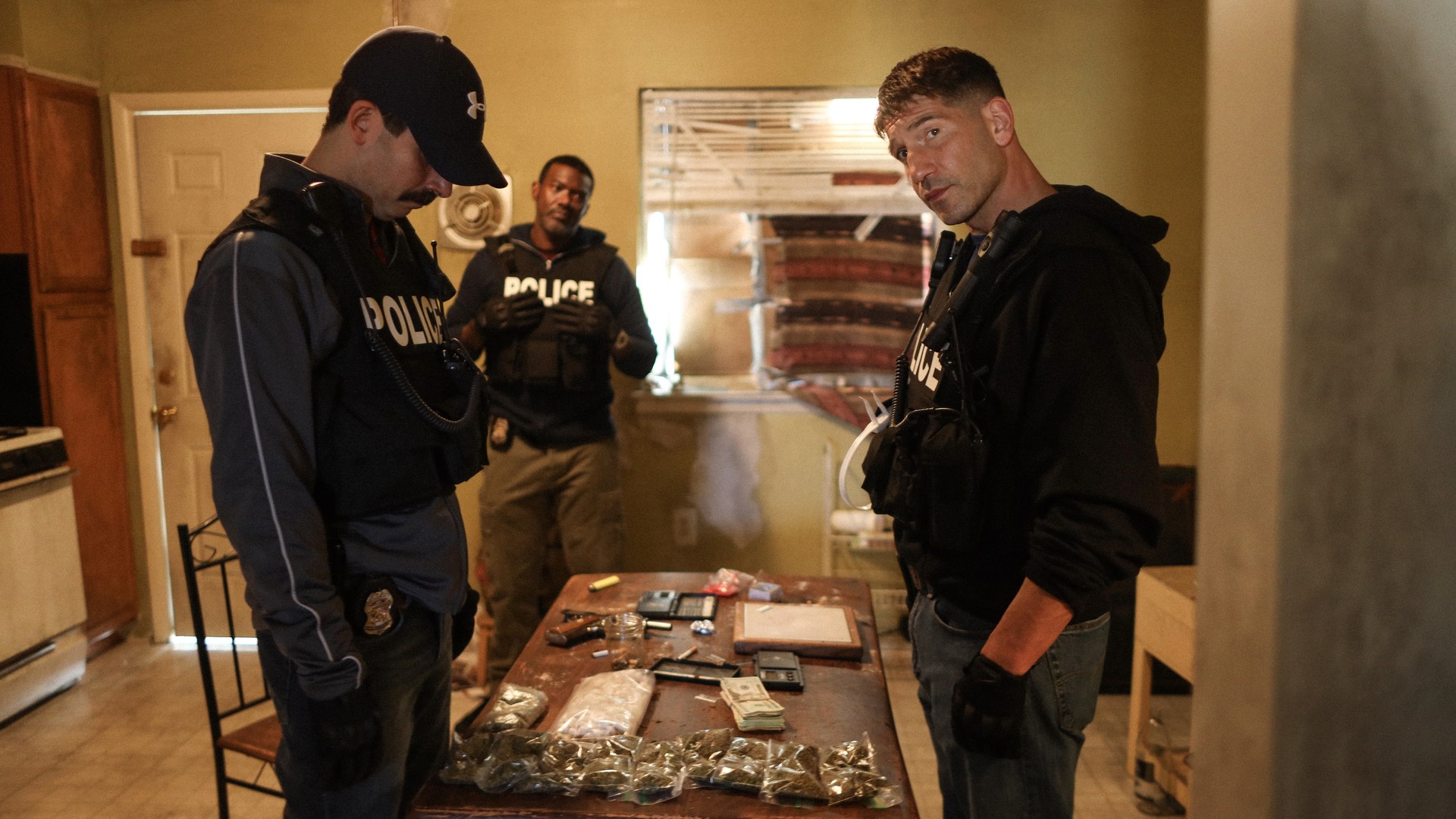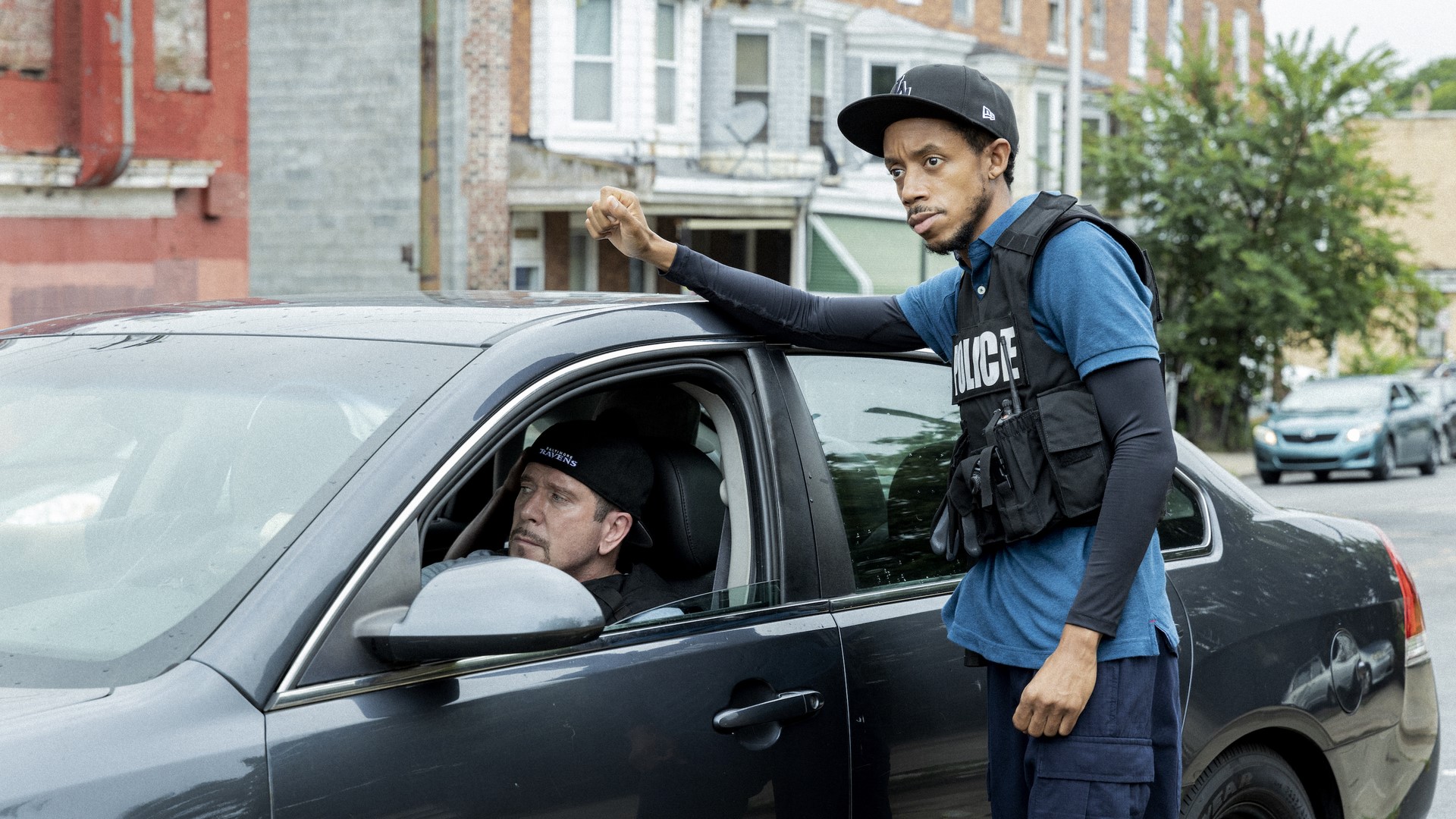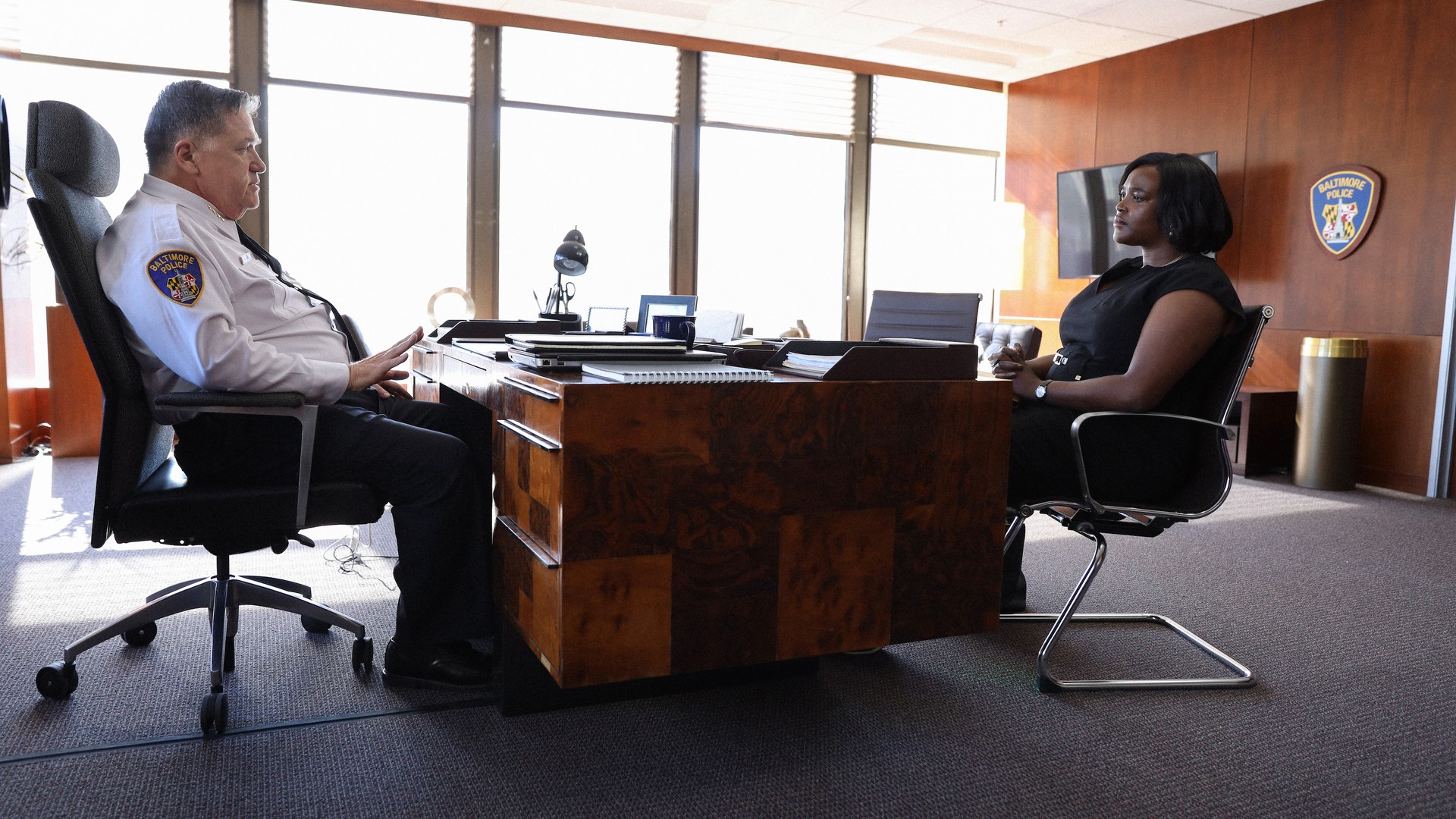Fact vs Fiction: We Own This City episode 3 — What were the circumstances of Davon Robinson's death?
Also, did Wayne Jenkins help someone unqualified become a licensed bail bondsman?

The latest updates, reviews and unmissable series to watch and more!
You are now subscribed
Your newsletter sign-up was successful
Want to add more newsletters?

ONCE A WEEK
What to Watch
Get all the latest TV news and movie reviews, streaming recommendations and exclusive interviews sent directly to your inbox each week in a newsletter put together by our experts just for you.

ONCE A WEEK
What to Watch Soapbox
Sign up to our new soap newsletter to get all the latest news, spoilers and gossip from the biggest US soaps sent straight to your inbox… so you never miss a moment of the drama!
After another shocking episode of We Own This City detailing the sheer reach of corruption by the Baltimore city police, we wondered what part of what we saw was fact and what was fiction.
For example, was a Baltimore cop really responsible for the murder of Davon Robinson? While he wasn’t directly killed by police, did an officer’s misconduct cause him to be gunned down in his front yard? Also, was interim Baltimore police commissioner Davis too good to be true in terms of being an advocate for police reform for the city?
Here’s what we’ve determined was fact and fiction for We Own This City episode 3.
Also, check out WTW's fact vs fiction pieces for We Own This City episode 1 and episode 2.
What were the circumstances of Davon Robinson's death?

In the third episode of We Own This City, viewers see Sgt. Thomas Allers (Bobby J. Brown) betray both his oath to honorably protect and serve the community and his fellow criminals on the Gun Trace Task Force.
When Allers, Detective Daniel Hersl (Josh Charles) and crew pull over Davon Robinson, they do so claiming he was driving with a suspended license. However, these officers were lying. They were searching for illegal money they could pocket for themselves and whatever guns they could find to justify the illegal search. When they couldn't locate anything in Robinson's vehicle, they escorted him to his home.
At Robinson’s house, Robinson, his significant other and his child watched as the police ransacked his home. While the other three cops on the scene managed to only find weapons, Allers finds $10,000, which he secretly pockets for himself. By the end of the episode, Allers is informed that the money he stole from Robinson actually belonged to a local drug supplier. When the supplier didn't get paid, he murdered Robinson. Is this chain of events what really happened?
The latest updates, reviews and unmissable series to watch and more!
As documented in The Real News, Sgt. Allers plead guilty to nine robberies, including the one of Davon Robinson. Leo Wise, a US State’s Attorney that helped prosecute the case against the Baltimore officer, stated because Allers stole that $10,000, Robinson was unable to pay a debt he owed a local drug dealer. Subsequently, Robinson was gunned down in front of his home.
Did Wayne Jenkins help someone unqualified become a licensed bail bondsman?

In the episode we also see Sgt. Wayne Jenkins (Jon Bernthal) meet up with his friend Donald Stepp (Seth Hurwitz). Stepp is a licensed bail bondsman who credits Jenkins for his career. However, it appears Jenkins went went above and beyond to pull some strings. It was almost as if Jenkins helped someone unqualified break through red tape. So was this the case?
Mostly yes.
According to Bounty Hunter Edu, the qualifications for becoming a licensed bail bondsman in Maryland at the time of We Own This City were: be able to satisfy the work experience requirement, be at least 18 years old, have a good moral character, have no criminal record, be knowledgeable about bail insurance and complete an official application form.
The "having no criminal record" part should have automatically disqualified Stepp from obtaining a bail bondsman license. The Pulitzer Center reports that prior to becoming a bondsman, Stepp had a history of cocaine and alcohol abuse, plus a lengthy criminal record of breaking into vehicles and businesses.
Although he had a record, Stepp had his lawyer and former employer submit letters to the Maryland Insurance Administration stating that he changed his life around and was essentially of good moral character. Even with those letters, it was arguably Jenkins’ glowing recommendation as an officer of the law that really got Stepp his license. In Jenkins’ letter to the state organization obtained by The Pulitzer Center, he states:
"... Donny Stepp is now one of the good guys. I hope you will consider granting Donny his license. He is truly a changed man, clean and sober going on 16 years. I trust him with my children. I would trust him with my money. I trust him in my house. I don’t even think in terms of whether he is trustworthy anymore. He is just Donny, my friend and a good guy."
However, when this letter was written, Stepp was knee-deep into dealing drugs and was even moving illegal substances for Jenkins, who was stealing narcotics from dealers around the city, again per The Pulitzer Center.
Was Baltimore police commissioner Kevin Davis a champion of police reform?

During this week’s episode, Civil Rights Division attorney Nicole Steele (Wunmi Mosaku) is trying to determine if interim Baltimore police commissioner Kevin Davis (Delaney Williams) really desires to reform the police department in the city or if he is simply trying to portray this good guy.
Davis says he wants to help change things and even touts his history of community policing (even giving out his direct phone number to community leaders for them to call), but Steele is on the fence on whether he's being genuine. Was he?
His actions point to yes.
Let’s start by defining what a consent decree is, a term brought up in the series. Consent decrees, as defined by The New York Times, are "court-approved deals between the Justice Department and local governmental agencies that create a road map for changes to the way they operate."
With that definition in mind, when the DOJ and Baltimore officials came to an agreement on the decree in President Obama’s last days in office, Davis was an advocate of it and played a role in making sure it came to life under his tenure as commissioner. He would even tell Baltimore’s local news station WBALTV:
"Whether it is accountability or training or technology or early intervention systems, the cops on the street will absolutely benefit from this consent decree. I have no doubt when we eventually emerge from this consent decree, we will be better crime-fighters and we will have a greater, more trustful relationship with our community."
In terms of the effectiveness of the decree, a recent Department of Justice report published in April cites that in the five years since the decree was implemented there has been an "adoption of a wide range of new policies covering use of force, transport, impartial policing and stops, and searches and arrests that provide clear guidance to officers to ensure effective and constitutional policing." Additionally, the official report names a slew of other improvements in the city’s police force.
We Own This City airs on HBO and HBO Max platforms on Mondays at 9 pm ET/PT.
Terrell Smith has a diverse writing background having penned material for a wide array of clients including the federal government and Bravo television personalities. When he’s not writing as Terrell, he’s writing under his pseudonym Tavion Scott, creating scripts for his audio drama podcasts. Terrell is a huge fan of great storytelling when it comes to television and film. Some of his favorite shows include Abbot Elementary, Matlock, The Lincoln Lawyer, Survival of the Thickest, The Pitt and Godfather of Harlem. And a fun fact is he's completely dialed into Bravo Universe and The Young and the Restless (thanks to his grandmother).


